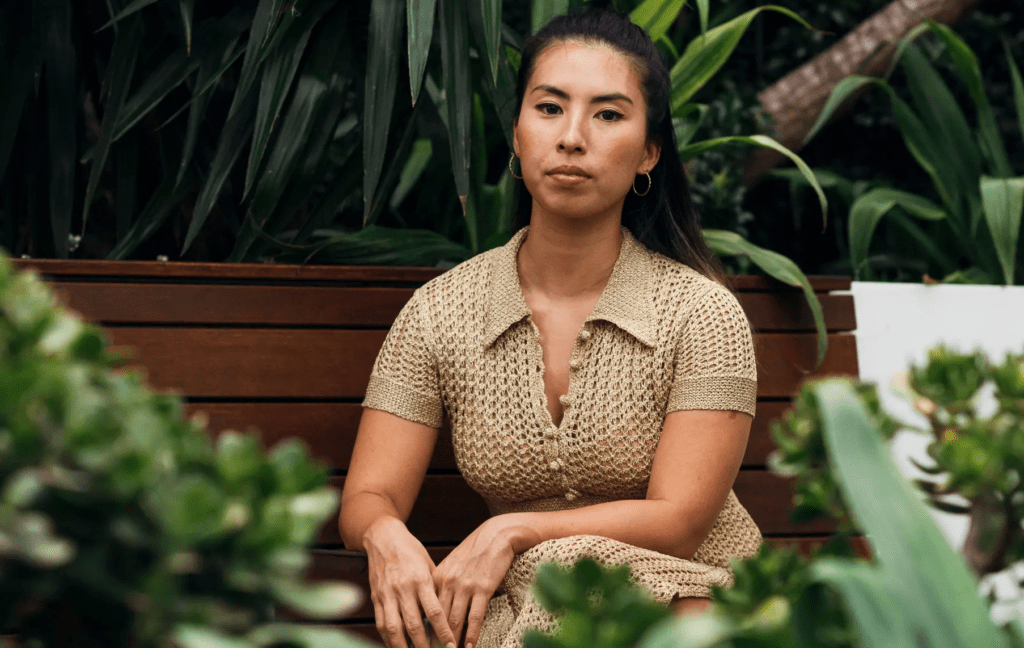Since setting boundaries at work and learning to listen to her emotions, Dr. Yumiko Kadota is sharing her story to help others struggling with burnout.
She’s written a book that explores the toxic culture of bullying and overwork that junior doctors can experience in an Australian public hospital system and describes why she decided to walk away. The title of the book is Emotional Female: a reclaiming of an insult thrown at her by a male colleague.
“I think women are just sick of being called different things that are so gendered. I hardly ever see a man being called emotional. It seems like it’s almost always women,” says Kadota.
The nature of Kadota’s job at the hospital required her to be on-call 24/7 for multiple days on end in a severely understaffed unit, eventually leading her to quit after being diagnosed with severe depression.
Using her background in medicine, Kadota now advocates for mental and physical health through her work as a fitness instructor and the creation of her own skin clinic.
She’s managed to reclaim her life outside of a toxic hospital work culture and wants us all to know how important it is to listen to our bodies and find our own voice.
After recently profiling Kadota for our podcast series, Moments That Make Us, thanks to the support of Stella Insurance, we wanted to share more on the valuable insights we learned from her conversation with Shivani Gopal.
You can find the Moments That Make Us series on iTunes and Spotify, and catch all six eps of this special series.
Listen to your body
While working as a Plastic Surgery Registrar, Kadota says she ignored the signs of burnout until her body told her “enough”.
Left unable to sleep properly for 18 months before finding the right medication to help, she says it shouldn’t have to get to that point for us to give ourselves rest.
“Regardless of how it physically manifests, I think if you get a physical symptom of your burn-out, that’s when you know there’s something seriously wrong. It’s gone beyond feeling mentally tired. Your body is breaking down and that’s a serious thing.”
Kadota wants us to remember that it’s normal human physiology to require rest and believes that overworking shouldn’t be glamorised as it so often is in hospital work culture.
Put your health first
“I reject anyone who tries to blame someone who has burnt out on the job because we need to stop doing that to people and really take responsibility for their environmental factors,” Kadota says on the working conditions that drove her to burnout.
She believes it’s the responsibility of employers to ensure their employees have a safe workplace and doesn’t think we should feel guilty for taking care of our health.
Keep your sparkle by staying curious
When Kadota was experiencing the worst of burnout, she had a friend tell her she seemed to have lost her “sparkle”: meaning her zest for life.
Having now regained that “sparkle”, Kadota likes to think back to advice her parents gave her as a child: stay interested and be curious.
“At the age of three, my mom gave me ballet lessons. I enjoyed that and I loved athletics, I was always active, and I love music and all of these other interests. And when I was studying Medicine, of course, I was very passionate about studying, but there’s probably a length of time where work got too much that I didn’t have time to really enjoy anything else outside of work.”
These days, she feels good about spending time prioritising her health and allowing herself to get involved with things she’s passionate about.
Find your own voice
Now that Kadota is her own boss, there’s nothing holding her back. She felt discouraged to talk about her real feelings in her previous hospital work, but in the last few years of recovery has been openly speaking up on social issues, especially those that affect women of colour.
“Part of finding my voice has been a social education for myself, learning about all of these issues like sexism and racism through interacting with people online and doing my own reading. I feel like now that I have all of this extra knowledge, I’m able to advocate so much better.”
Share your story
What eventually led to Kadota’s book started out as a blog post shared to social media. It was an incredibly validating experience for her to see so many people relating to her experiences with bullying and burnout at work.
“My experience when I first left [the hospital] was that I was made to feel like a failure, and I felt like I had done something wrong. But when I wrote my blog post, all of these people who I’d never met reached out to me and shared their stories and made me feel like I wasn’t alone.”
Kadota realised that by sharing her story, she had started an open conversation on issues like systemic racism and misogyny that desperately need to be addressed in the workplace. Her refusal to be silent has opened many doors for cultural change.


